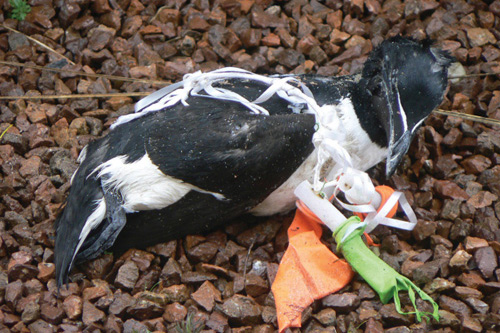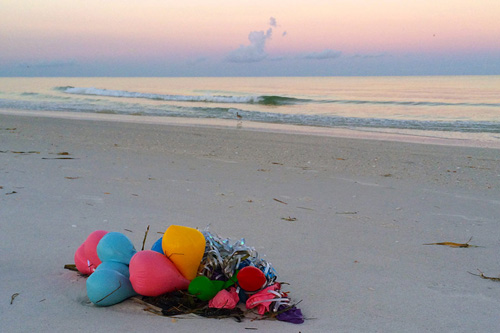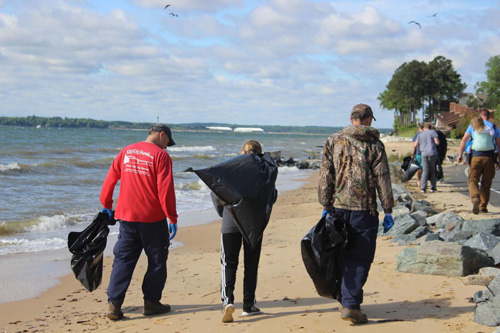


Marine debris is defined by the National Oceanic and Atmospheric Administration (NOAA) as any persistent solid material that is manufactured or processed and directly or indirectly, intentionally or unintentionally, disposed of or abandoned into the marine environment or the Great Lakes. Anything man-made, including litter and fishing gear, can become marine debris once lost, discarded, or washed into the aquatic environment. The most common materials that make up marine debris are plastics, glass, metal, paper, cloth, rubber, and wood. Marine debris is a complex global problem with disturbing impacts to aquatic life and our environment. Research has also shown that very small pieces of marine debris (called "microplastics" and "microfibers") are present in our drinking water, sea salt, and seafood.
Resources to learn more:
Preventing Balloon Litter
Single-Use Plastics
Utilizing funding from NOAA's Coastal Program, Maryland's Coastal Zone Management Program has assisted two projects directed towards preventing litter from single use plastics.
Other Debris Harmful to our Waterways and Wildlife
Fishing Line and Tackle:
Never leave fishing line or lures in the environment where they can entangle or kill wildlife. Always place old fishing line and tackle in a trash bin or take them home to dispose of properly. Our wildlife thanks you!
Abandoned Boat and Debris Program
The Department provides reimbursable grants and expertise to assist public agencies in the removal of abandoned boats and debris from state waters. Funds for the program come from the state
Waterway Improvement Fund, which is generated from a one-time 5% excise tax paid to the State when a boat is purchased and titled in Maryland. To learn more visit:
https://dnr.maryland.gov/Boating/Pages/abandonedboats.aspx.
Help us track the trash – Anytime you participate in a trash cleanup event, please document your findings! There are a variety of free apps to help you track your trash, including the
Marine Debris Tracker,
Clean Swell, and
Litteratti, or you can simply create a tally of the items you find and input them into the
International Coastal Cleanup database.
For more information about this issue in Maryland, contact
[email protected].